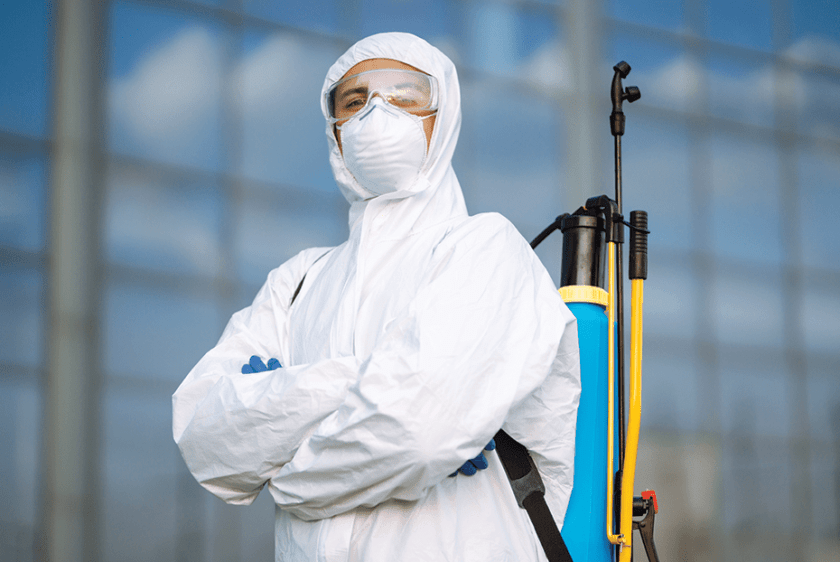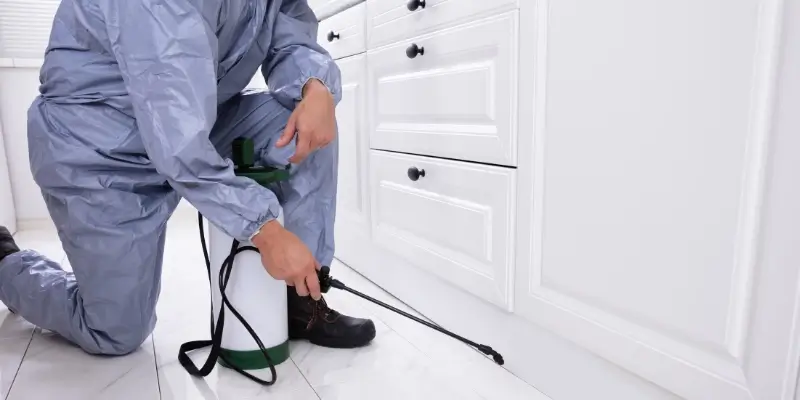Find the Best Exterminator Coquitlam for Fast and Reliable Pest Control
Find the Best Exterminator Coquitlam for Fast and Reliable Pest Control
Blog Article
Safe and Trusted Bug Control for Lasting Defense
Reliable parasite administration needs a complex technique that balances eco-friendly honesty with the need for efficient parasite suppression. The subtleties of these approaches may not be promptly clear, prompting a better assessment of the techniques that can lead to lasting parasite control end results.
Comprehending Pest Control Approaches
Bug control incorporates a range of approaches focused on managing and removing undesirable pests and rodents that can threaten both health and residential or commercial property. Understanding these approaches is essential for reliable parasite monitoring.
The main groups of bug control techniques consist of mechanical, organic, and chemical approaches. Mechanical methods include physical barriers and traps to protect against bug access and capture undesirable varieties. For instance, using screens on windows or utilizing sticky traps can significantly reduce bug populations without presenting dangerous compounds.

Chemical parasite control is commonly one of the most acknowledged technique, making use of chemicals to get rid of parasites. These chemicals can be reliable but should be utilized with caution to avoid unfavorable impacts on non-target species and the setting.
Benefits of Eco-Friendly Solutions
Exactly how can green solutions transform insect control practices? The adoption of eco-friendly bug control approaches supplies many benefits, substantially improving the effectiveness and safety of pest management (exterminator coquitlam). These options use natural ingredients, lowering the dependence on harmful chemicals that can position risks to human wellness and the atmosphere. This shift not just secures households and pets yet also minimizes the possibility for soil and water contamination.

One more benefit is the positive effect on local biodiversity. Environment-friendly solutions are made to target certain pests while maintaining valuable insects and wildlife, promoting a well balanced community. This technique aligns with the expanding customer demand for sustainable methods, enhancing the reputation of insect control companies.
Integrated Insect Management Techniques
The application of environment-friendly services naturally causes the adoption of Integrated Insect Administration (IPM) strategies, which additionally boost parasite control effectiveness. IPM is a holistic approach that combines several techniques to take care of pest populaces while lessening ecological effect. This approach stresses the usage of organic, cultural, mechanical, and chemical controls, making sure a well balanced and sustainable method of pest monitoring.
One fundamental aspect of IPM is the complete assessment of pest activity and environmental problems. By keeping track of pest populaces and determining their life cycles, specialists can implement targeted treatments that disrupt the parasite's habitat or lifecycle, minimizing reliance on chemical pesticides. Additionally, social practices such as crop rotation and environment manipulation can dramatically reduce insect establishment and reproduction.
One more critical component is using biological control agents, such as useful insects or microbes, which can normally subdue insect populaces. When chemical applications are needed, IPM focuses on making use of low-risk chemicals and applies them precisely, reducing direct exposure to non-target organisms and human beings.
Incorporating IPM approaches not only boosts insect control performance but additionally promotes a more secure community, straightening with the growing need for sustainable techniques in insect management.
Safe Practices for Home Owners
Understanding the importance of secure techniques in parasite control can equip home owners to successfully handle parasite issues while guarding their wellness and the environment. Executing preventive procedures and non-toxic methods is crucial in reducing exposure to hazardous chemicals.
Property owners ought to first analyze their setting for problems that bring in insects, such as standing food, water, and mess waste. On a regular basis cleaning and sealing access about pest control factors can deter pests from attacking the home. Making use of natural deterrents, such as vital oils or diatomaceous earth, can provide efficient options to chemical pesticides.
When chemical treatments are necessary, house owners need to go with items that are particularly classified as risk-free for domestic use. It is necessary to comply with application guidelines carefully to stay clear of overexposure. Making use of targeted treatments in areas where insects are identified, instead than covering splashing, can considerably lower chemical usage.
Finally, maintaining open interaction with pest control professionals is essential. Property owners ought to ask about the security of items used and demand environment-friendly options whenever possible. By taking on these risk-free techniques, home owners can develop a healthier living setting while properly managing bug concerns.
Tips for Long-Term Defense
Developing an insect management technique that stresses lasting security can substantially enhance the performance of the safe practices previously gone over. To achieve this, homeowners should execute normal examinations of their residential or commercial property, focusing on concealed locations such as attic rooms, cellars, and crawl spaces. Early detection of bug task is important in avoiding invasions from taking hold.
These practices lower attractants that draw bugs into the home. Sealing access points, such as fractures around doors and windows, can effectively block possible bug gain access to.
Landscape design should also be taken into consideration; maintaining plants cut and preserving a range in between plant life and the home lessens hiding places for pests. Utilizing all-natural deterrents, such as necessary oils or diatomaceous planet, can further inhibit invasions without resorting to rough chemicals.
Lastly, teaming up with an expert insect control service Look At This for routine examinations can provide an added layer of safety. These experts can use tailored recommendations and progressed therapies, making certain that your home continues to be safeguarded versus insects in the long-term.
Conclusion
Finally, safe and reputable parasite control needs a multifaceted technique that emphasizes environmentally friendly methods and incorporated parasite administration. By executing natural deterrents, carrying out normal inspections, and maintaining correct sanitation, property owners can considerably minimize parasite populaces while securing valuable insects and the environment. Partnership with professional insect control solutions improves the effectiveness of these techniques, making sure customized remedies that supply long-term defense and satisfaction versus future problems.
Reliable parasite management needs a diverse technique that stabilizes environmental stability with the need for effective bug reductions. The fostering of green insect control approaches supplies many benefits, dramatically boosting the performance and security of pest monitoring.The execution of green services naturally leads to the fostering of Integrated Bug Management (IPM) methods, which even more enhance parasite control efficiency. exterminator coquitlam. By checking bug populations and identifying their life cycles, experts can carry out targeted interventions that interfere with the bug's habitat or lifecycle, reducing dependence on chemical pesticides.In final thought, safe and reliable bug control requires a complex article technique that emphasizes green techniques and integrated bug management
Report this page